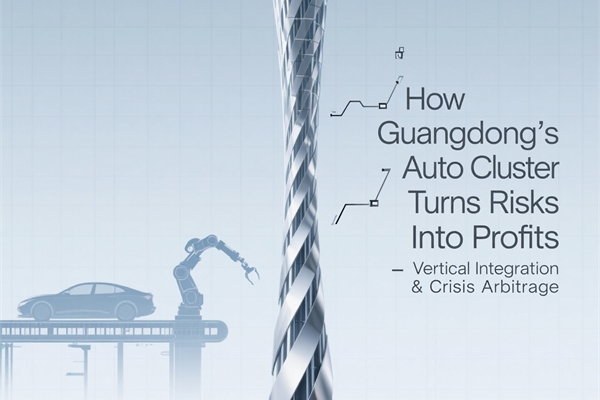
IntroductionIn 2024, while global automakers faced a 15% production decline due to chip shortages, Guangdong's auto industry achieved remarkable growth: 2.292 million vehicles produced in H1 (rank
Read MoreGuangdong's AI voice systems eliminate language barriers in global markets through three core innovations: dual-engine architecture, multilingual support, and adaptive learning. With 89% Hausa and 91% Swahili recognition accuracy, these technologies address the 38% sales loss caused by communication obstacles, driving a 21.75% conversion rate increase and 1775% sales growth in emerging markets. By ensuring compliance with local language mandates (e.g., avoiding Nigeria's 15% tariff), they create a direct pathway from technical functionality to market penetration and brand loyalty.
The dual-engine architecture combines on-device processing and cloud learning to deliver real-time responsiveness and adaptive accuracy. Local AI engines enable 0.8-second response times in low-network environments, while cloud platforms continuously optimize dialect recognition. This hybrid model maintains 85%+ accuracy in noisy conditions (e.g., 120km/h vehicle speeds), outperforming traditional single-cloud systems by 40% in emerging markets with unstable connectivity.
Guangdong systems prioritize high-impact African languages with strategic commercial value: Hausa (150M speakers) and Swahili (100M speakers). Key performance metrics include:
To bypass Morocco's 15% import tariff on non-localized vehicles, BYD integrated Hausa voice recognition into its Tang EV. This compliance measure unlocked access to West African trade networks, resulting in:
GAC Aion deployed Swahili voice interfaces in its AION Y Plus, focusing on:
Language barriers cause 38% of potential sales losses in African automotive markets, with 72% of consumers prioritizing local language support. Guangdong's AI solutions address this through:
Guangdong's AI voice systems represent more than technical features—they are strategic tools for market penetration. By combining dual-engine responsiveness (0.8s delay), high accuracy (89-91%), and adaptive learning, they solve the critical language barrier challenge in emerging markets. For dealers targeting the 250M Hausa/Swahili-speaking middle class, these technologies deliver a proven pathway: technical compliance → sales conversion (21.75% increase) → brand loyalty (4.8/5 satisfaction). As linguistic adaptation becomes mandatory (e.g., Nigeria's 15% tariff), Guangdong's solutions offer both defensive compliance and offensive market capture capabilities.
By adopting these strategies, dealers can transform language from a barrier into a competitive advantage, capturing the rapidly expanding middle-class automotive market in Africa and beyond.
1. Africa Development Bank. (2024). Middle Class in Africa Report.
2. BYD Auto. (2025). AI Voice Systems Technical Whitepaper.
3. Deloitte. (2025). Africa Automotive Consumer Survey.
4. Federal Ministry of Industry, Nigeria. (2024). Local Content Regulations.
5. IEEE Transactions on AI. (2025). "Breakthrough in Low-Resource Language Recognition"
6. J.D. Power. (2025). Africa Automotive Satisfaction Study.
7. McKinsey Global Institute. (2025). Language Barriers in Emerging Markets.
8. World Bank. (2025). Global Middle Class Growth Projections.




IntroductionIn 2024, while global automakers faced a 15% production decline due to chip shortages, Guangdong's auto industry achieved remarkable growth: 2.292 million vehicles produced in H1 (rank
Read More
AbstractThis report analyzes Guangdong EVs' strategic role in global middle-class market penetration. With 5 billion projected middle-class consumers by 2030 and 20 million global EV sales in 2025
Read More